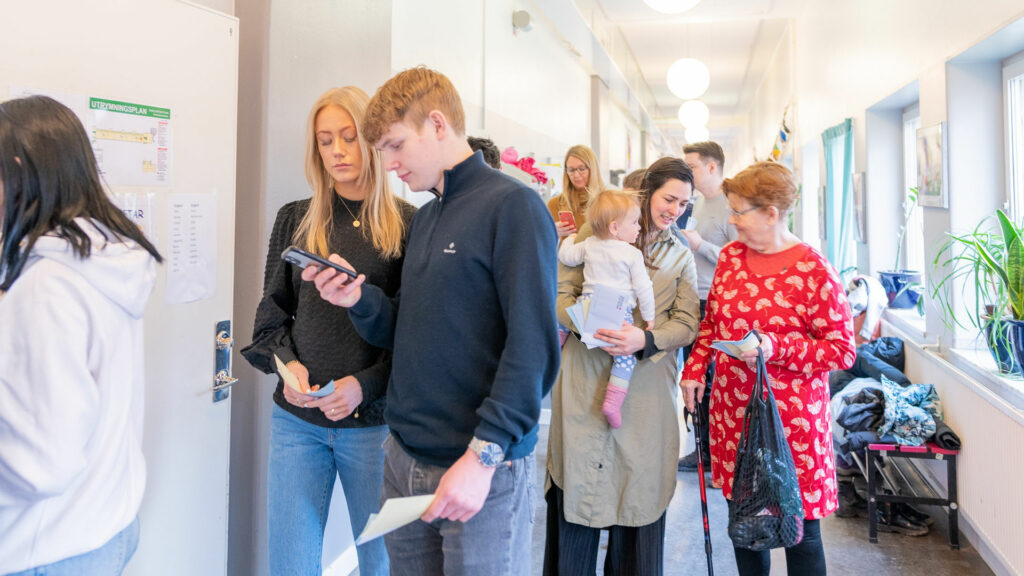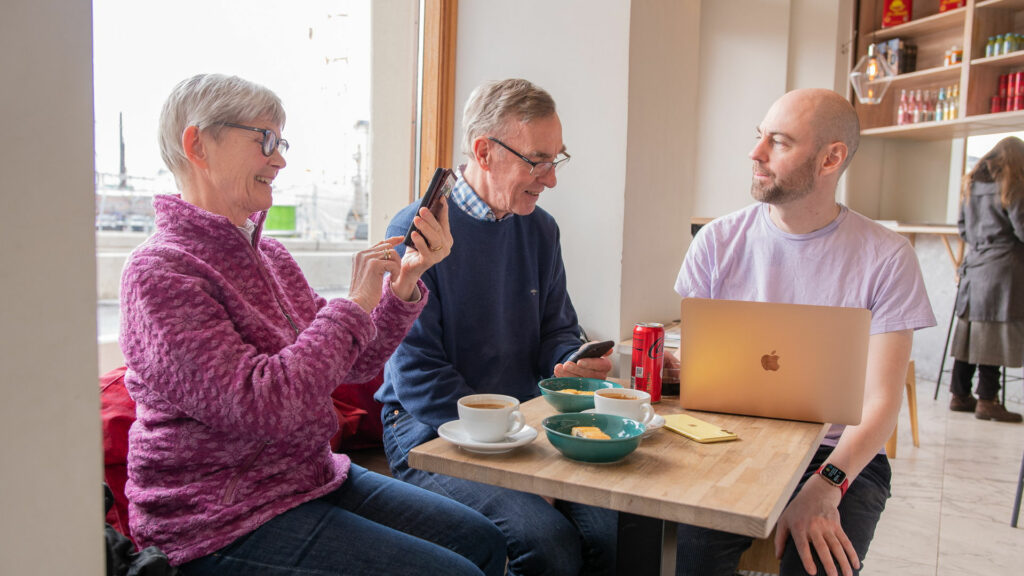Social media is an important source of political information, and a place where everyone, aside from the oldest generation, discusses politics. However, a harsh debate climate causes many to limit themselves in the political conversation, and the information found on social media is not considered particularly credible.
Welcome to The Swedes and The Internet: Election Special 2022. This interim report is about the internet as a political arena. The purpose of the study is to shed light on the internet’s role in politics, both in disseminating political content and as a platform for political engagement. With this report, we want to contribute to increased knowledge about internet users' behaviours, attitudes and actions in political contexts online.
Digitalisation is growing rapidly in most areas, including politics. In the run-up to the 2014 parliamentary elections, not even half of Swedish voters took part in political information on the internet. But already by the 2018 election, the internet had become very important for gathering information and conducting political discussions. Ahead of the upcoming election in the autumn of 2022, we see that social media in particular has a prominent role. This is where the political discussions take place, but social media is also an important source for political information.
As in many other cases, we see a big difference between how people of different ages respond to digitalisation. For the oldest voters, television is still the most common way to access political information, but this decreases with the age of the population. Voters born in the 90s and 00s use social media more often for political information.
Younger voters embrace social media
Within social media, we see differences in behaviour among the youngest who most often use Instagram to take part in political information. People born in the 00s also use Twitter more than older generations, and are basically alone in using Tiktok for political information. Older generations mainly use Facebook instead for this. Facebook is also the most common place online to express political views, for all but the youngest voters.
The youngest who are now going to vote for the first time also stand out in other ways compared to the older voters. They share more articles and discuss politics online to a greater extent. In addition, they believe that the internet gives them a greater opportunity to influence societal issues.
This is in contrast to the oldest voters online, the pensioners. Admittedly, they are politically interested, but participate to a significantly lower extent in the online political conversation. Otherwise, political interest is a decisive factor in entering into political discussions on the internet.
There are more men than women who discuss politics online, and in addition, there are different issues that are discussed mostly by men and women respectively. Almost twice as many men as women have discussed politics online with people they do not know.

Television has the highest reliance
It is traditional media that enjoy the greatest trust from the voters. A majority think that most of the political information on television, radio and newspapers is reliable. Confidence in the political information on social media is generally low, and most people believe that only a small portion, or none of the information there, is reliable. This is despite the fact that a large part of the political information they state that they encounter on social media, is precisely shared articles and news items from traditional media.
More than half of internet users are also very worried that misleading and false information will be used to influence the outcome of this autumn's elections. Just over a third are also very worried that foreign states or authorities will use the internet to influence the Swedish election. Here, we want to emphasize that our survey was conducted in December 2021, before the war in Ukraine. Revolutionary world events may well affect concerns about disinformation as a means of power, while at the same time the issue has been raised in the media. Regardless, source criticism and valuation of information are critical abilities in today's digital world.
Hatred and threats limit the conversation
Another factor that limits the open political conversation online is the harsh debate climate. In total, just under a tenth of internet users have been exposed to hatred or threats linked to political opinions, while it is a fifth among those who discuss politics online. The fear of being exposed to hatred or threats means that many choose to limit themselves in the political debate. In fact, one in five internet users answer that they have refrained from expressing a political opinion in the past year in order to avoid harsh criticism, hatred or threats.
The fact that such a large part of the political conversation takes place on social media, also leads to the question of what responsibility social media platforms have over the content that is published there. When it comes to political posts with hate and threats, we see that a large majority is inclined to allow the platforms to remove such, and half agree with this completely. When it comes to posts with political information which is judged to be false or misleading, the opinions take a greater divergence. Although a majority is inclined to allow social media to remove such posts as well, a much smaller proportion completely agree.
Here, too, we see that the youngest internet users show a different behaviour compared to the older internet users. First-time voters are not only more active in online political discussions – they are also more likely to report offensive posts. In the last year, a quarter of first-time voters have reported posts with political content because they contain harsh words, hatred or threats. This is significantly more than the average internet user, where not even one in ten has reported a political post.
The internet provides opportunities
It is clear that the internet and social media have become central to gathering political information, and to participating in the political conversation. Almost one in three internet users has discussed politics online, and even more among those with a strong political interest. Young people, in particular, are active in online political conversations, and look positively upon their opportunities to influence by participating.
Those who participated in the survey have also been able to submit their own written comments on how they believe the internet can be used to get more people involved in the political conversation. These answers also show that the issue of an open online discussion climate is complex. Where some believe that the internet has made it possible for everyone to make their voices heard, others believe that the internet only creates polarisation and does not promote the political debate at all.
Social media is generally highlighted as an opportunity to arouse commitment and interest. At the same time, there is criticism of how the content of the social platforms is driven by algorithms that favour confrontation and simplification, rather than in-depth conversations and mutual understanding. It is not entirely certain that our social media feeds are the best tools for understanding a complex and difficult-to-understand world.

Insights for the election year 2022
In the autumn of 2022, it is once again time for the Swedish population to go to the polls. In connection with the election year, The Swedish Internet Foundation wants, with this interim report, to lay focus on the internet’s important role in the democratic society. With the survey, the answers of which were collected in December 2021, we want to contribute facts and insights on how the use of the internet in Sweden develops in connection with politics. We want to provide a basis for the digitalisation of Swedish society and business to take place on a well-informed foundation.
